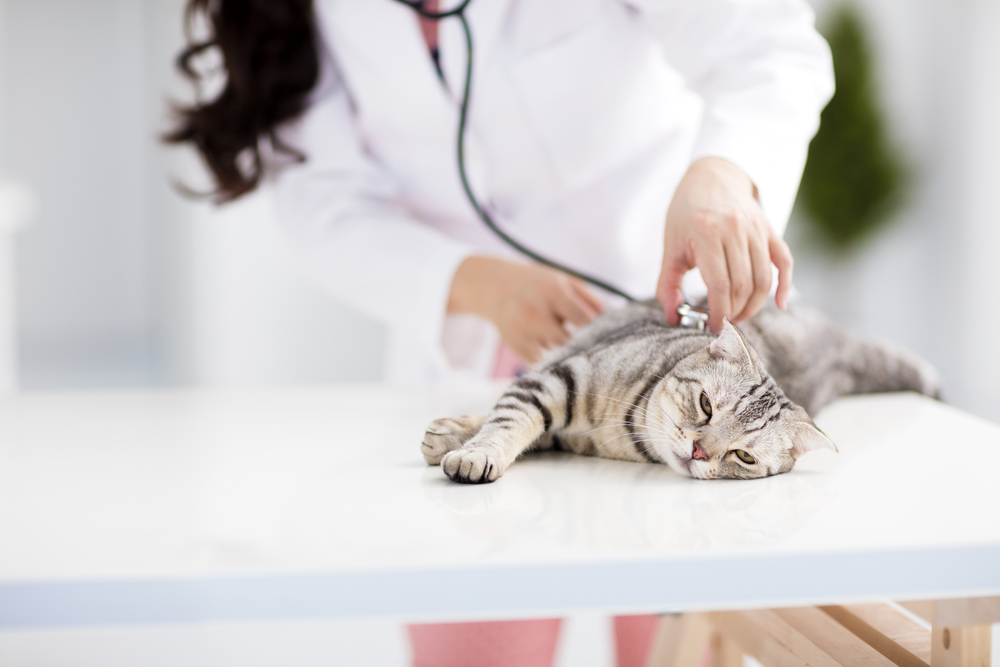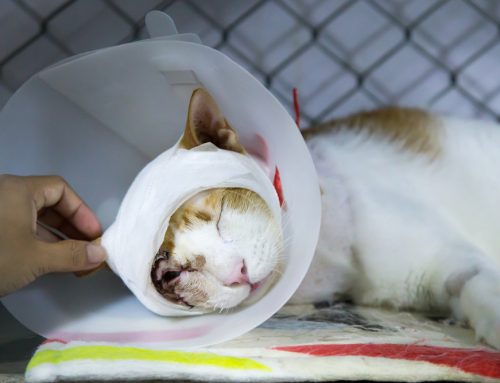In this comprehensive guide, our Neighborhood Veterinary Centers – Nederland team explains the complexities of pancreatitis and offers tips on how to prevent your pet from developing this painful condition.
What is pancreatitis?
Pancreatitis is an inflammation of the pancreas caused by the premature activation of digestive enzymes within the organ. The condition can be either acute or chronic, but in both cases, it is painful for your pet and veterinary care is necessary.
Common signs of pancreatitis include vomiting, diarrhea, abdominal pain, lethargy, and decreased appetite.
How to prevent pancreatitis
You can’t prevent every pancreatitis case, but you can take steps to reduce your pet’s risk such as:
#1 Diet management
A well-balanced diet is essential to minimize the risk of pancreatitis. We can customize a dietary plan for your pet to help promote their long-term health.
#2 Skip the table Scraps
Resist the urge to share your food with your pet, no matter how longingly they look at you. Fatty human foods act as triggers for pancreatitis, which can lead to serious health problems for your pet.
#3 Regular exercise
Beyond helping your pet maintain a healthy weight, regular exercise plays a crucial role in preventing pancreatitis. Exercise helps regulate your pet’s metabolism and reduce their likelihood of obesity, which is a significant risk factor for pancreatitis.
#4 Gradual diet changes
Changing your pet’s diet should be a gradual process. Abrupt changes may place stress on the pancreas, making it susceptible to inflammation. Our veterinary team can help you ensure your pet’s transition to a new diet is a smooth one.
#5 Weight management
Keep your pet at a healthy weight by monitoring the body condition score, feeding them an appropriate amount, and measuring their meal portions. If your pet has a few pounds to lose, contact our team so we can devise a safe weight loss plan.
Signs of pancreatitis
Understanding the subtle signs that could indicate your pet is suffering from pancreatitis is crucial for early detection and intervention.
#1 Gastrointestinal distress
Persistent vomiting and diarrhea could indicate your pet has pancreatitis, and you should seek veterinary attention.
#2 Abdominal pain
If your pet shows signs of abdominal discomfort or is reluctant to be touched, contact our team as soon as possible..
#3 Lethargy
Changes in your pet’s energy level could be an indicator that they have a problem. In particular, sudden lethargy can be a red flag for various health issues, including pancreatitis. If your normally lively pet seems to be dragging, you should call our team.
Treatment for pancreatitis
If your pet is diagnosed with pancreatitis, our veterinary team will create a tailored treatment plan to help them recover as quickly as possible.
#1 Hospitalization and supportive care
If your pet has a severe case of pancreatitis, they likely will need to be hospitalized for intensive supportive care. Intravenous fluids, pain management, and nutritional support will all help speed the healing process.
#2 Medication
Prescribed medications, such as pain relievers and anti-nausea drugs, can help your pet feel more comfortable during recovery.
#3 Dietary management
After your pet has recovered, dietary adjustments will play a pivotal role in minimizing their chances that pancreatitis will recur. Our veterinary team will guide you through a regulated feeding plan, often incorporating low-fat prescription diets to ease the strain on your pet’s pancreas.
#4 Monitoring and follow-up care
Regular monitoring and follow-up appointments will ensure we have a complete understanding of your pet’s progress and allow us to make adjustments to ensure their optimal recovery.
Additional insights: Going beyond the basics
Understanding the potential triggers of pancreatitis is critical to minimizing your pet’s chances of developing the condition.
#1 Medication side effects
Certain medications may contribute to pancreatitis. It’s crucial to inform our veterinary team of any medications your pet is taking so we can evaluate the potential risks.
#2 Genetic predispositions
Some breeds are more predisposed to pancreatitis. Knowing your pet’s breed and discussing potential risks with our veterinarians can aid in early detection.
Pancreatitis in senior pets

Senior pets may face additional challenges when dealing with pancreatitis.
#1 Reduced immune response
Aging can affect a pet’s immune system, making senior pets more susceptible to infections associated with pancreatitis.
#2 Regular checkups
Increased vigilance through regular veterinary checkups is vital to detecting pancreatitis early in senior pets.
Pancreatitis is a complex condition that demands a multifaceted approach to treatment, and our experienced and compassionate staff are committed to providing your pet with unparalleled care. For any concerns about pancreatitis or your pet’s well-being, schedule an appointment with Neighborhood Veterinary Centers – Nederland today.







Leave A Comment